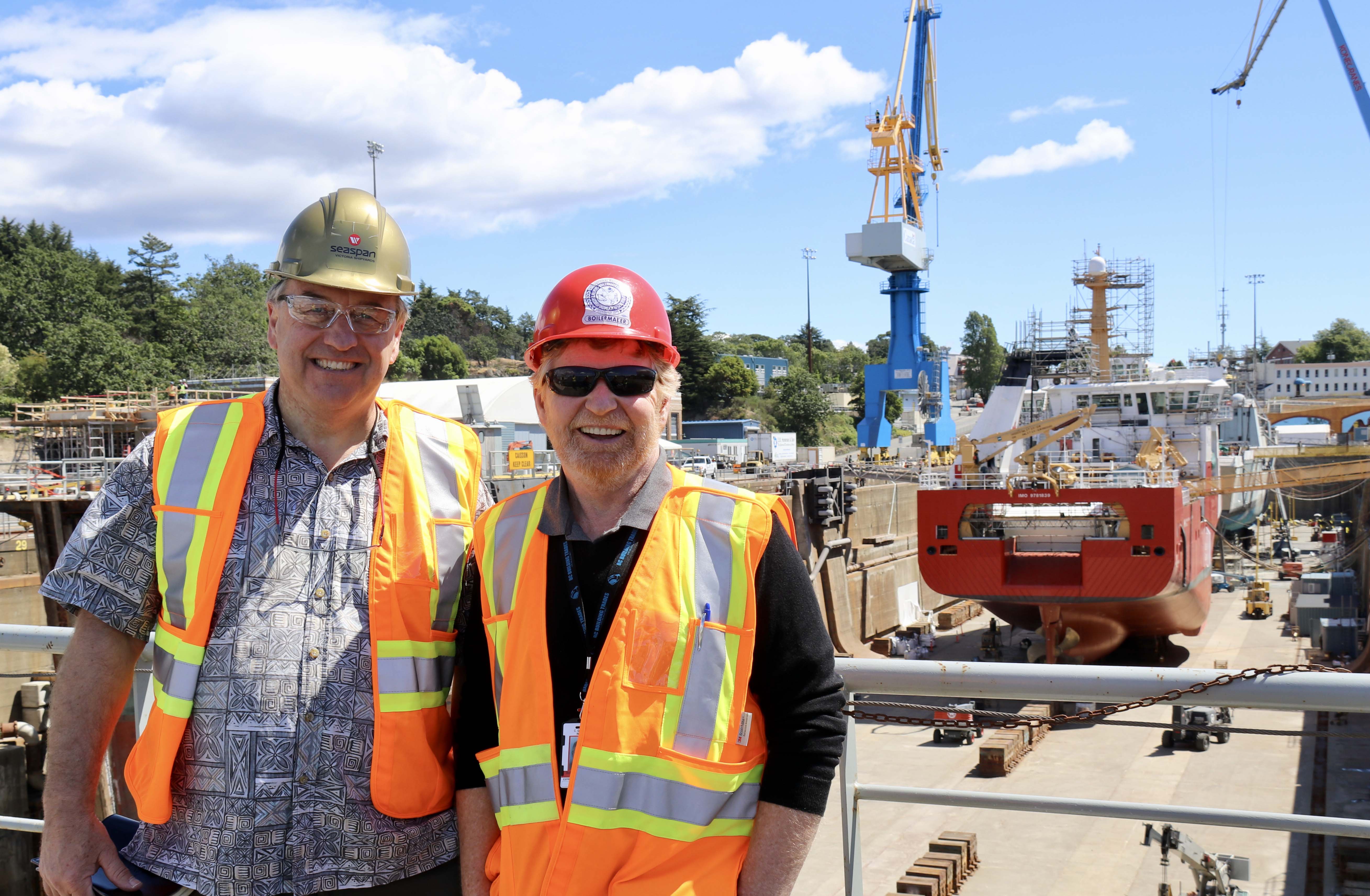Issues Blog
New property transfer data requirements show it’s time to close bare trust loophole
Today the government announced that it was taking steps to collect data to ensure transparency of ownership of properties purchased through a corporation or a trust. As I note in the media release below, improving data collection and transparency is a good first step, but the province should proceed with applying property transfer tax to the transfer of beneficial ownership. Doing so would plug a loophole that lets corporations and wealthy individuals avoid paying BC’s property transfer tax.
It’s been almost five years since I began urging government to close this so-called bare trust loophole as was done in Ontario many years ago. Doing so is one of the most important steps government can take to crack down on speculative activity in the housing market.
Finally, and coincidentally, Great Britain announced similar measures today for offshore buyers. But in the UK case, stiff penalties and even jail sentences are being proposed if people “fail to register or attempt to file false information“.
Media Release
New property transfer data requirements show it’s time to close bare trust loophole: Weaver
For immediate release
July 25, 2018
VICTORIA, B.C. – Andrew Weaver, leader of the B.C. Green Party, says the government’s move to collect information on beneficial ownership of properties underscores the immediate need to close the bare trust loophole. Bare trusts allow for the transfer of beneficial ownership within trusts. Since no title change occurs, no property transfer tax (PTT) is paid.
“This data collection is a good first step, but the province should proceed with applying property transfer tax to the transfer of beneficial ownership,” said Weaver.
“Speculation is a major driver of the housing affordability crisis. The bare trust loophole incentivizes speculation. Preventing individuals and corporations from using it to avoid paying taxes is low-hanging fruit and should be dealt with immediately. Applying the PTT to beneficial ownership has been done in Ontario and is what is needed to close this loophole once and for all.”
Weaver has called for the closure of the bare trust loophole since 2015. The government first announced its intention to collect additional data on beneficial ownership in the February provincial budget. Today, it announced that it will begin the data collection on September 17, 2018.
-30-
Media contact
Jillian Oliver, Press Secretary
+1 778-650-0597 | jillian.oliver@leg.bc.ca
Community benefits agreements & the proposed BC Infrastructure Benefits Inc.
Earlier this week the BC government announced 2 public infrastructure projects that will be delivered under “Community Benefit Agreements” (CBAs), and the creation of a new Crown corporation, BC Infrastructure Benefits Inc., (BCIB) that will oversee the implementation of these agreements.
In response to media requests on this announcement we issued the following statement :
“Community benefit agreements are a great way to invest in our province’s future and a key tool that government can use to advance social and environmental goals. In particular, investing in training and apprenticeships for young people, First Nations and women will help set those British Columbians up for long-term success, which will have significant knock-on benefits for our province and its communities.
I look forward to seeing the details of the government’s overall framework. I will be looking to ensure that it is fair and effective from a policy perspective, rather than a political or ideological one. While our caucus’ approach to labour policy differs in some respects from the BC NDP’s, I believe there are significant opportunities for us to collaborate to modernize BC’s laws so that we can best set British Columbians up for success amidst major global economic shifts.
I look forward to seeing the details of this agreement and working with Minister Bains to meet our CASA commitment to find innovative ways to improve fairness for workers.“
In response to a number of questions, I wanted to expand on this statement.
Without a doubt, CBAs can be a good policy tool to accomplish important objectives for public construction projects, such as increased apprenticeships, increased participation for indigenous trades workers, women and other underrepresented groups, commitment to local hiring, and more certainty on wages on project timelines.
A strong building trades labour force is critical for our province’s future. To meet our climate targets and build a stronger, sustainable economy, we are going to need to make significant investments into our existing building stock, as well as building new infrastructure including public transportation. We also need to ensure our workforce develops, in particular by ensuring that there are enough apprenticeship opportunities to train new workers.
However, CBAs must be advanced as a policy tool to address the values I outlined above – not as a tool to pay back political favours or to advance ideology at the expense of good policy. We have made this perspective clear to the government, and will be applying this approach to reviewing how the government awards Community Benefit Agreements in the future.
We have also asked government to provide reasoning for why the two projects announced earlier this week had a unionization requirement for workers on these two sites.
It is our view that CBA should be applicable for both union and non-union trade shops and that we are focused on ensuring that whoever is competing for a contract is meeting the requirements laid out in the CBA. To be clear – CBAs can be good policy, providing a good tool for government to help drive the development of a strong building trades labour force, as long as we use them for policy not partisan reasons.
Findings of fish processing compliance audit show need for reform
The BC Government today released the Fish Processing Facilities Compliance Audit Report that was commissioned following findings by Tavish Campbell that effluent containing the Piscene Reovirus (so-called “blood water”) was being discharged from a BC fish processing facility.
This issue was explored by my colleague Sonia Furstenau during question period late last year:
The report provides a clear illustration of the type of problems that have arisen from the previous BC Liberal administration’s severe cutbacks to compliance and enforcement initiatives within government.
As the Minister of Environment and Climate Change Strategy noted in the government’s statement accompanying the report’s release:
“The industry has been largely operating under an outdated permitting regime, going back several decades. We are taking immediate steps to ensure permits are updated and strengthened at fish processing facilities throughout B.C.”
Between ICBC, money laundering, the housing crisis and a litany of environmental disasters, it’s increasingly clear that the previous government badly mismanaged our province.
Government has a responsibility to ensure the public interest by proactively updating laws and regulations to fit changing realities. Instead, the previous government left British Columbians with mounting debts while they pillaged the public books and turned a blind eye to harmful activities. We have taken significant steps to remedy this, including banning big money and reforming the lobbying industry, but we must take every opportunity in this minority government to clean up B.C. to prevent such blatant misuse of power.
Below I reproduce the media statement that the BC Green caucus issued in response to government’s release of the report.
Media Release
Findings of fish processing compliance audit show need for reform: B.C. Green caucus
For immediate release
July 4, 2018
VICTORIA, B.C. – The B.C. Green Caucus is calling on government to step up marine monitoring and protection in the wake of an audit of fish processing facilities. Andrew Weaver, leader of the B.C. Green Party, says the report shows a disturbing pattern of widespread mismanagement by the previous B.C. Liberal government that must be addressed.
“Between ICBC, money laundering, the housing crisis and a litany of environmental disasters, it’s increasingly clear that the previous government badly mismanaged our province,” said Weaver. “Government has a responsibility to ensure the public interest by proactively updating laws and regulations to fit changing realities. Instead, the previous government left British Columbians with mounting debts while they pillaged the public books and turned a blind eye to harmful activities. We have taken significant steps to remedy this, including banning big money and reforming the lobbying industry, but we must take every opportunity in this minority government to clean up B.C. to prevent such blatant misuse of power.”
Sonia Furstenau, environment spokesperson, added that the findings show why government should adopt Mark Haddock’s recommendations to reform the professional reliance model.
“As the previous government cut the funding needed to fulfill government’s duty to protect the public interest, they saddled our province with completely avoidable messes,” said Furstenau. “Many British Columbians were horrified, like I was, to see Tavish Campbell’s videos of blood water effluent that prompted this audit. It is no wonder people don’t trust the process when we must rely on private citizens and the media to bring such serious issues to light. Adopting Mark Haddock’s recommendations – and the ministry’s recommendations following this audit – will go a long way to restoring the public’s trust that government is looking out for their health and safety, as well as the long-term sustainability of our natural resource sector.”
Adam Olsen, spokesperson for agriculture, said the findings underscore the litany of threats facing B.C.’s wild salmon and added the release of infected blood from farmed fish is another reason why the government should keep its promise to transition away from open-net pen finfish aquaculture.
“Wild salmon are culturally, economically and environmentally essential to our province, yet we are allowing them to be hit at every stage of their development,” said Olsen. “Now we learn they have also been exposed to ‘acutely lethal’ levels of effluent.”
DFO’s 2018 salmon outlook for B.C. states that of 91 different groupings of salmon, only 28 are expected to be at or above the amount necessary for a healthy population.
“This is absolutely unacceptable – we can and we must do better if we want our grandchildren to live in a province with wild salmon,” added Olsen.
-30-
Media contact
Jillian Oliver, Press Secretary
+1 778-650-0597 | jillian.oliver@leg.bc.ca
German report demonstrates need for systemic change, investigation into links with real estate sector
The BC Government today released Peter German’s long awaited report on money laundering in Lower Mainland casinos.
The report, entitled Dirty Money: An Independent Review of Money Laundering in Lower Mainland Casinos conducted for the Attorney General of British Columbia, demonstrates systemic failure within the previous government to adapt our laws and regulations to changing realities.
Below is the media release we issued in response to the report’s release.
Media Release
Weaver: German report demonstrates need for systemic change, investigation into links with real estate sector
For immediate release
June 26, 2018
VICTORIA, B.C. – Andrew Weaver, leader of the B.C. Green Party, welcomed Dr. Peter German’s independent review of money laundering in Lower Mainland casinos. Weaver says that German’s finding that large-scale transnational money laundering has been occurring in our casinos, and that B.C.’s laws and regulations have not kept pace with changing realities, demonstrates the need for wholesale policy change.
“Dr. German’s report demonstrates systemic failure within the previous government to adapt our laws and regulations to changing realities,” said Weaver.
“We have seen significant growth and change, both in B.C. and globally, since many of our laws and regulations were first developed. Outdated policies have left our province vulnerable to exploitation as transnational criminal entities have become increasingly more sophisticated.
“It is encouraging to hear that recent government actions have led to a significant reduction in suspicious activity in B.C. casinos, and I am pleased that the Attorney General has accepted the recommendations. What is most important now is that government provide clear timelines for implementing the recommendations and is transparent with regards to progress. In particular, the recommendation that the Province undertake research into allegations of organized crime penetration of the real estate industry should be at the top of government’s agenda. British Columbians are looking for answers as to why our housing market spiralled out of control so quickly and if we are to develop effective solutions we must undertake a thorough investigation of this issue.
“Government cannot be asleep at the switch amidst such significant threats. Going forward, government must be significantly more proactive in modernizing our laws and regulations so that we are not faced with such a crisis again.”
-30-
Media contact
Jillian Oliver, Press Secretary
+1 778-650-0597 | jillian.oliver@leg.bc.ca
On the governments “Speculation Tax”
Over the last few months, I’ve been contacted by numerous constituents concerning the BC Government’s proposed “Speculation Tax”. Constituents who have contacted my office would have received an email outlining my views on this proposed measure. As the BC Green critic and spokesperson on the demand side of the affordability file, I felt it was instructive for me to make these views more readily available. Below I reproduce the contents of the email constituents would have received.
A group will be hosting a town hall on the speculation tax at the Dave Dunnet theatre at Oak Bay Secondary School from 19:00 to 21:00 on Thursday, June 28th. I look forward to hearing your views on the issue.
Text of Email
Thank you for writing to me about the government’s proposed speculation tax.
The speculation tax will be proposed in legislation that is to be brought forward in the fall.
In accordance with our Confidence and Supply Agreement, government consults with our Caucus on many matters. All input we provide government is aimed at producing evidence-based public policy that will deliver outcomes that are in the best interests of the province as a whole.
The BC Greens have indicated to government that we do not support the speculation tax because 1) it doesn’t address speculation; 2) there are too many unforeseen consequences; 3) it is administratively burdensome.
The speculation tax targets two distinct issues. The first is vacant properties. The second are satellite families — families who pay little or no taxes here in Canada.
The BC Greens recommended several alternate approaches to government on how to better deal with the housing crisis. First, we suggested that government introduce enabling legislation to allow local governments to implement a vacancy tax if they felt it was necessary for their communities. Victoria, for example, has asked for the powers to introduce such a tax. Enabling the ability of local governments to introduce a vacancy tax is relatively straightforward. The legislative language already exists in the Vancouver Charter.
Three benefits of this approach are that any monies raised would remain in the affected community, its implementation would be highly focused, and the issue of double taxation in the Vancouver area would be addressed. Should vacancy or rental shortage issues no longer be a problem, local governments could also respond rapidly without the need for provincial legislation.
Another recommendation of the BC Greens was to introduce a New Zealand-style ban on foreign purchases in the secondary housing market unless trade agreements prohibit this. New Zealand, for example, excluded Australia in its offshore buyer ban due to existing agreements.
In addition, we recommended the closure of the bare trust loophole and the introduction of a flipping tax – a tax levied on people who flip properties, buying and selling them in a short timeframe for significant profits.
The information that we provided government regarding the speculation tax was that it should be as targeted as possible in addressing speculative activity in the housing market. We also communicated that government should work to minimize unintended consequences on people and activity we don’t want to target, without fundamentally undermining the impact of the tax.
The BC Green caucus also articulated a number of problems with the proposed speculation tax. We pointed out that it made no sense to have a vacancy tax applied to strata units that had “no rental” clauses in their rules.
In areas that are disproportionately home to vacation property owners (e.g. Cultus Lake prior to its exemption), the local economies are dependent on seasonal visitors and part-time residents. Therefore, implementing this tax would have negative consequences on these economies that likely outweigh the benefits. This remains a problem with the proposed inclusion of Kelowna and West Kelowna in the Speculation Tax.
We noted that in some areas covered there is no substantive rental market (e.g. islands with no ferry service). And we continue to remain concerned that Canadians from different provinces will be treated differently. We remain committed to the notion that all Canadians should be treated equally.
We look forward to seeing the government’s legislation in the Fall. We remain committed to our shared goal of taking action to address the housing affordability crisis.
I hope this helps to clarify my position and the actions I am taking on this tax. There is so much uncertainty still out there on this speculation tax and it is not something the BC Greens would have proposed.
Best wishes,
Andrew







